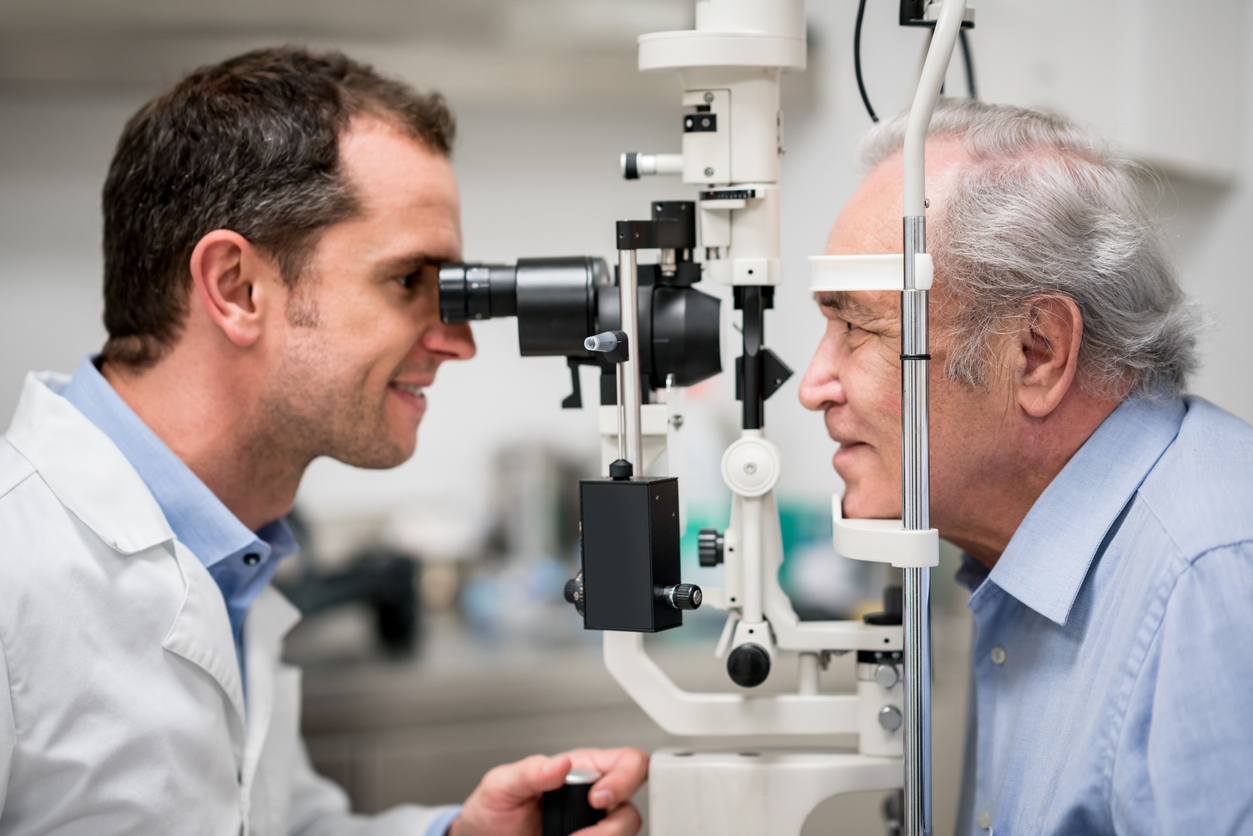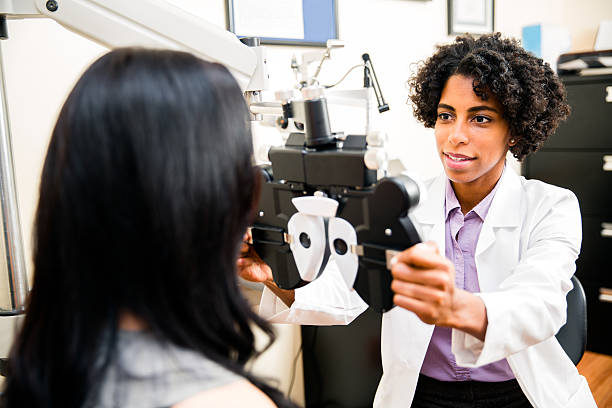Optometrist Montgomery: Top Quality Eye Treatment and Vision Solutions
Optometrist Montgomery: Top Quality Eye Treatment and Vision Solutions
Blog Article
The Importance of Regular Eye Examinations: Insights From an Experienced Ophthalmologist
Regular eye exams serve as an important part of healthcare that extends beyond simple vision adjustment. A skilled eye medical professional can offer understandings into just how these examinations not only identify typical eye conditions yet likewise reveal underlying health and wellness issues that might otherwise go undetected.
Benefits of Regular Eye Exams
Although numerous people may overlook the significance of routine eye exams, these evaluations play a crucial role in maintaining general health and wellness. Normal eye exams serve not only to evaluate vision but likewise to identify early indications of systemic wellness issues, including diabetes mellitus and hypertension. By determining these problems at their beginning, clients can obtain prompt interventions, dramatically improving lasting outcomes.
In addition, eye exams can help in monitoring existing health and wellness issues, making certain that any type of changes in vision or eye health are promptly dealt with (optometrist). The assessments permit for customized referrals relating to eyeglasses, lifestyle adjustments, and safety measures versus potential eye pressure or damages
Beyond physical wellness, the benefits of normal eye examinations expand to enhancing high quality of life. Inevitably, prioritizing eye exams promotes an aggressive approach to wellness management, empowering individuals to take charge of their health.
Common Eye Issues Detected
Normal eye exams contribute in finding a variety of common eye conditions that can considerably affect vision and general health and wellness. Amongst one of the most common conditions determined throughout these evaluations are refractive mistakes, consisting of myopia (nearsightedness), hyperopia (farsightedness), and astigmatism. These problems usually show up as obscured vision and can be conveniently corrected with prescription glasses or get in touch with lenses.
Furthermore, cataracts, which create clouding of the lens, are often identified in older grownups. This problem can bring about decreased vision and needs surgical intervention for resolution. An additional typical concern is glaucoma, a group of eye conditions that harm the optic nerve, typically linked to increased intraocular stress. Early detection is essential as it can prevent irreparable vision loss.
Age-related macular deterioration (AMD) is an additional substantial problem that influences main vision, especially in people over 50. Finally, diabetic retinopathy, an issue of diabetes mellitus, can lead to severe vision impairment if not monitored consistently. Via comprehensive eye exams, these conditions can be identified early, allowing for timely management and treatment to preserve vision and enhance quality of life.
Importance of Early Discovery
Very early detection of eye conditions plays a vital duty in maintaining vision and protecting against significant health and wellness issues. Numerous eye diseases, such as glaucoma, diabetic person retinopathy, and age-related macular degeneration, can progress calmly without obvious symptoms in their beginning. By the time symptoms materialize, irreversible damages may have occurred, bring about long-term vision loss.
Regular eye examinations help with very early medical diagnosis, allowing for prompt intervention and therapy. As an example, dealing with elevated intraocular stress can avoid the onset of glaucoma, while handling blood sugar degrees can substantially reduce the danger of diabetic retinopathy. Furthermore, conditions like cataracts can be successfully managed with medical intervention when recognized early.

Exactly How Commonly Should You Go To?
Identifying the regularity of eye exams is necessary for preserving optimal eye wellness and vision. The general referral for adults is to have an extensive eye test each to two years, depending upon individual threat factors and age. For people aged 18 to 60, an examination every 2 years why not find out more is usually sufficient if no vision problems are existing. Nonetheless, those over 60 ought to take into consideration annual examinations, as the threat of age-related problems increases considerably.
Individuals with certain danger aspects, such as a household history of eye disease, diabetes mellitus, or existing vision troubles, might need more constant analyses. Kids ought to have their first eye test at 6 months of age, followed by additional examinations at age three and prior to going into institution. Regular exams throughout childhood years are important as vision can change rapidly throughout developing years.
Ultimately, the regularity of sees must be customized to each person's scenarios, including lifestyle, job-related threats, and any type of pre-existing eye conditions. Consulting with an eye treatment expert can provide tailored suggestions, making certain that your eye wellness is regularly monitored and maintained.
Tips for Your Eye Examination
Preparing for your eye examination can boost the efficiency of the browse through and guarantee a comprehensive analysis of your eye health. To optimize your time with the eye medical professional, it is important to collect relevant info before your consultation. Start by putting together a checklist of any medicines you are presently taking, including over the counter medicines and supplements, as these can impact eye health and wellness.
Additionally, document any kind of symptoms you have experienced, such as obscured vision, pain, or migraines. This info will certainly help your optometrist in identifying possible issues. If you wear glasses or call lenses, bring them along, even if you do not use them consistently. This will help the doctor analyze any modifications in your vision.
It is additionally useful to have a family members history of eye problems at hand, as genetic variables can add to your eye health. Lastly, take into consideration scheduling your examination for a while when you are less hurried, permitting you to ask inquiries and discuss your issues extensively. By my sources preparing appropriately, you ensure that go to these guys your eye test is productive and that your optometrist has all the necessary details to give the very best treatment feasible.

Conclusion
Regular eye exams play a crucial function in preserving both vision and overall health. They facilitate the very early discovery of numerous eye problems and systemic problems, permitting timely treatment. The referrals for regularity highlight the value of aggressive treatment. Carrying out straightforward primary ideas can improve the assessment experience. Eventually, prioritizing detailed eye assessments contributes significantly to the preservation of vision and the improvement of high quality of life, highlighting the need of regular eye care in preventive medical care methods.
Routine eye examinations are instrumental in spotting a range of common eye problems that can dramatically influence vision and overall health and wellness.Determining the frequency of eye exams is necessary for maintaining optimal eye health and wellness and vision.Preparing for your eye test can boost the effectiveness of the go to and make sure a thorough assessment of your eye health and wellness (optometrist). By preparing effectively, you ensure that your eye exam is efficient and that your eye physician has all the needed information to give the finest treatment feasible
Ultimately, focusing on comprehensive eye examinations contributes considerably to the conservation of vision and the improvement of high quality of life, underscoring the necessity of routine eye care in preventive medical care methods.
Report this page